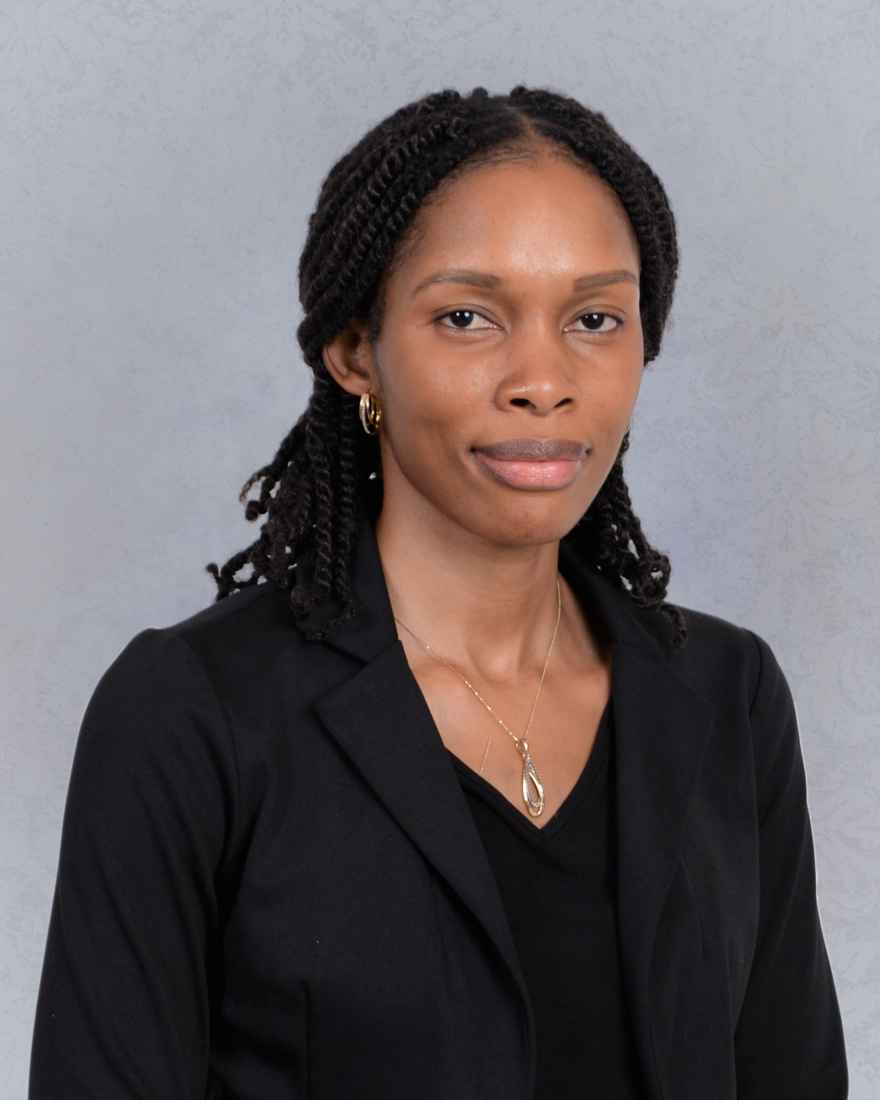UChicago Scholar Receives ACLS Emerging Voices Fellowship

By Sara Patterson
For UChicago Humanities Teaching Fellow Michele Kenfack, the apocalypse means new beginnings, not destruction. Her scholarship delves into an apocalyptic pattern of renewal that she discovered among prominent Francophone novelists from Africa and the Caribbean.
As result of her work, Kenfack (PhD’20) recently received the American Council of Learned Societies Emerging Voices Fellowship for 2021. She is one of 48 fellows and will pursue her postdoctoral work in comparative literature at Harvard University.
“Through a stunningly wide-ranging, interdisciplinary probing of apocalyptical fictions in the late 20th-century Francophone Sub-Saharan African and Caribbean literature, Michele Kenfack’s dissertation makes a groundbreaking contribution to the study of colonial and post-colonial traumas,” said Larry Norman, the Frank L. Sulzberger Distinguished Service Professor and Chair in the Department of Romance Languages and Literatures, Theater and Performance Studies, Fundamentals, and the College.
Her dissertation on “Francophone Apocalypse: History and (Re)Writing in African and Caribbean Prose (1968–1990)” looks at how authors—such as Marie Vieux-Chauvet from Haiti, Maryse Condé from Guadeloupe, Aminata Sow Fall from Senegal, René Despestre from Haiti, and Yambo Ouologuem from Mali—wrote about upheavals resulting in resistance and revolution. As in the U.S., 1968 was an important year of dissent in Africa and the Caribbean. Likewise, 1990 signaled an historic turn toward democracy in more African and Caribbean nations, notably in Haiti.
"I have framed my literary studies on the similarities among these novelists from many countries writing about revolution and rebirth bracketed by two pivotal years that showed historical turns in their own distinct ways,” Kenfack said.
From childhood, she loved to read prose in addition to graphic novels and cartoons. Born in the Republic of Cameroon, her first languages were French and Yemba (a Cameroonian language) before Kenfack became fluent in English and Haitian Kreyol, as well as knowing some Spanish and beginning to learn German.
In addition to being multilingual, Kenfack has been educated in both Cameroon and the U.S. In Cameroon, she earned her bachelor’s degree and two master’s degree respectively in French and Francophone Studies before pursuing her master’s degree in translation at the University of Wisconsin in Milwaukee. Kenfack decided to enter the doctorate program in the Division of the Humanities at University of Chicago because of its commitment to interdisciplinary research. Broadly, her scholarship centers on the intersection of history and literature.
When applying for ACLS Emerging Voices Fellowship program, Kenfack heard that a humanities scholar had not been chosen during its first year. Despite the odds, she decided to apply.
“In spring 2020, when the academic job market all but ground to a halt because of the pandemic, the ACLS stepped in and established the Emerging Voices Fellowship Program, which kept the hopes of several dozen new PhDs for academic careers alive,” said Anne Walters Robertson, Dean of the Division of the Humanities at UChicago. “We are enormously grateful that the ACLS has repeated the competition this past spring, and we are especially pleased that Michele Kenfack is among the second class of fellows.”
Through the Emerging Voices Fellowship, Kenfack will receive an annual stipend of $60,000 with an additional $5,000 for research and professional development. Most important, she can enlarge her network and advance her interdisciplinary scholarship for another year while increasing her chances of gaining a university tenure-track position.
During her studies at Harvard, Kenfack plans to turn her dissertation into her first book, publish more articles, and develop a new course on the introduction to online humanities. She is eager to find new strategies to get students actively engaged and excited to work on a course focusing on the humanities.
“Online learning requires thinking ahead about all the challenges before the students are there,” she said. “Additionally, the humanities are too often overlooked when, in fact, this body of knowledge anchors our civilization. So, I am excited to get students immersed in the humanities and aware of its relevance to our lives.”